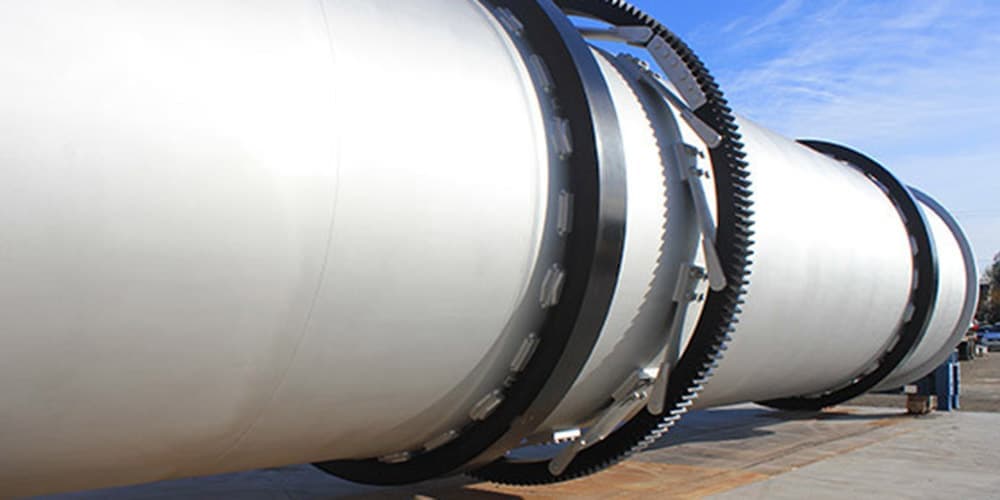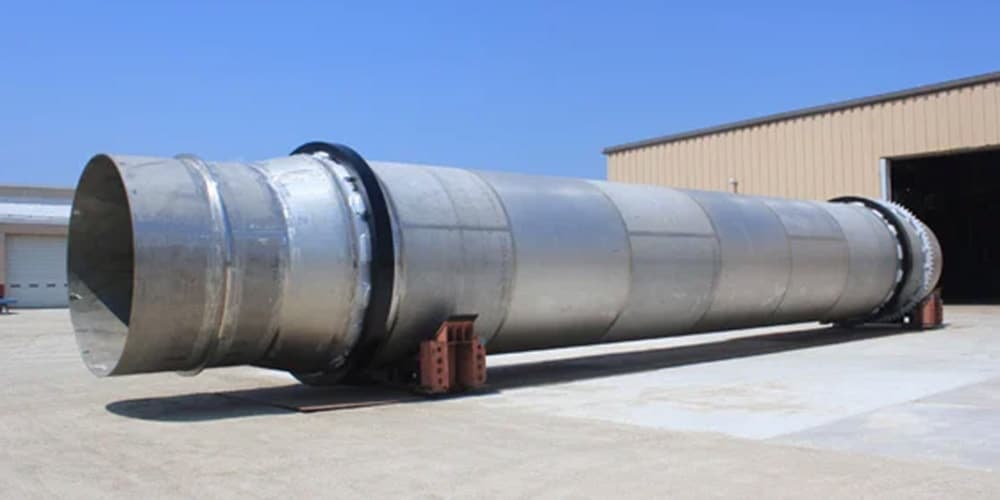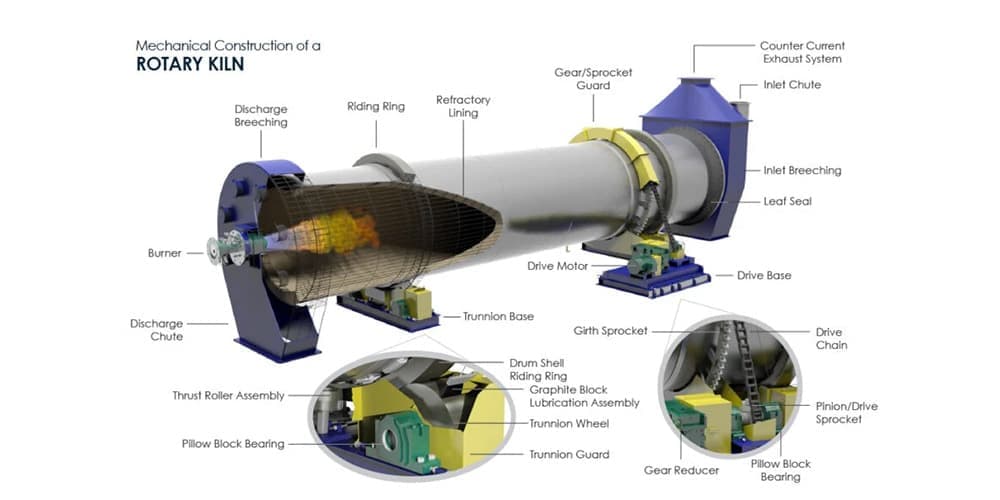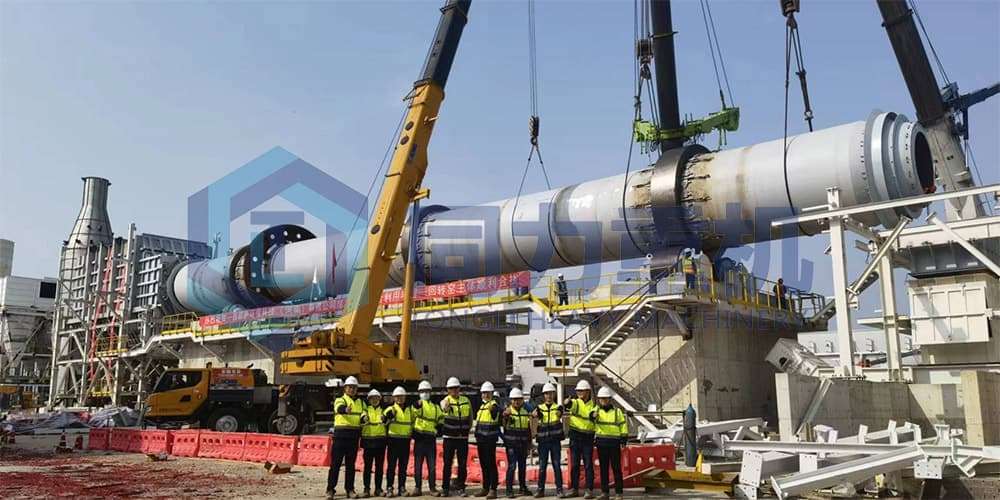Corrosion Control in Rotary Dryers
Corrosion is a common problem faced by rotary dryers, which not only causes expensive damage to the equipment, but also leads to process inefficiencies and unnecessary downtime. This problem is particularly acute in dryers that were not designed with corrosion in mind. Fortunately, there are several ways to protect equipment from corrosion.

Common Rotary Dryer Corrosion
Corrosion takes many forms, each caused by a different reaction, including physical, chemical and electrochemical. Probably the most familiar example of corrosion is rust, where elemental iron reacts with oxygen in the air to produce iron oxide. While there are many different causes and forms of corrosion, one thing is certain: corrosion can have negative effects, so steps must be taken to prevent and treat corrosion in rotary dryers.
Methods to Prevent Corrosion in Rotary Dryers
The main ways to prevent corrosion in rotary dryers include.
Using corrosion-resistant materials to manufacture the dryer
When manufacturing a rotary dryer, it is important to choose the right corrosion-resistant materials. Some metals are naturally more resistant to corrosion. Therefore, when purchasing industrial drying equipment, suppliers must understand the relationship between the material to be treated and the metal used to manufacture the dryer. Stainless steel and special alloys are often used to manufacture rotary dryers that handle corrosive materials.
Use of protective coatings
Specially developed paints and other organic coatings can be applied to the surface of rotary dryers to prevent metal corrosion. Common protective coatings include epoxy ester coatings that promote oxidation, polyurethane coatings, acrylic and epoxy polymer coatings, and latex coatings.
Regular monitoring of dryer condition
Rotary dryers should be carefully monitored and regularly maintained in conjunction with original equipment manufacturer (OEM) recommendations. Surface monitoring is particularly important to prevent metal corrosion. Cracks, crevices and rough surfaces increase the potential for corrosion. Corrosive materials should not be allowed to accumulate or agglomerate on the rotary dryer or in any crevices. This is particularly important in seasonal operating conditions where materials may remain for long periods of time, increasing the potential for corrosion.

Selection of appropriate materials and design
Selecting the right material and design for the specific application is critical to controlling corrosion. For certain materials that are corrosive only under certain conditions, it is possible to use stainless steel or special alloys only in the feed section of the dryer and carbon steel for the rest of the machine. In addition, cracks and crevices should be minimized in the design and manufacturing process to prevent material from depositing and beginning to corrode the equipment.
Use easily replaceable parts
For situations where severely corrosive materials are handled, consider using easily replaceable parts. For example, dryer and cooler lift plates can be bolted rather than welded so that maintenance personnel can quickly replace corroded plates as needed.

What components of the rotary dryer are most important to protect against corrosion?
- According to the information provided, corrosion protection for the rotary dryer is most important on the following components.
- Dryer cylinder: the cylinder is the main part in direct contact with the material, and it is also the most vulnerable to corrosion.
- Lifting plate (fly plate): lifting plate and material frequent contact, easy to be corroded.
- Sealing device: The sealing device prevents the external air from penetrating into the system, which is very important for preventing the leakage of corrosive gases.
- Inlet and outlet ends: These areas are susceptible to material buildup, increasing the risk of corrosion. Special attention should be paid to cleaning and monitoring these areas.

Conclusions
While corrosion is a difficult problem for any industrial drying operation, awareness is key. Choosing a rotary dryer manufacturer that takes into account the corrosive nature of the material to be dried is critical to improving process efficiency and extending equipment life. By taking the appropriate preventative measures and regular maintenance, corrosion in rotary dryers can be effectively controlled to ensure reliable long-term operation.
With over 60 years of experience in the heat treatment industry, TONGLI is a specialized manufacturer of rotary dryers. The company’s advantages include:
- Deep industry accumulation, familiar with a variety of material characteristics
- Durable rotary dryers for global customers
- Professional service team, good at dealing with corrosion problems
- Focus on anti-corrosion technology to ensure long-term reliable operation of equipment
- Customer-oriented and customized solutions
TONGLI can provide professional advice and services for both rotary kiln purchase and corrosion prevention upgrade of existing equipment. Customers are welcome to contact us at any time on rotary dryer and other issues.

